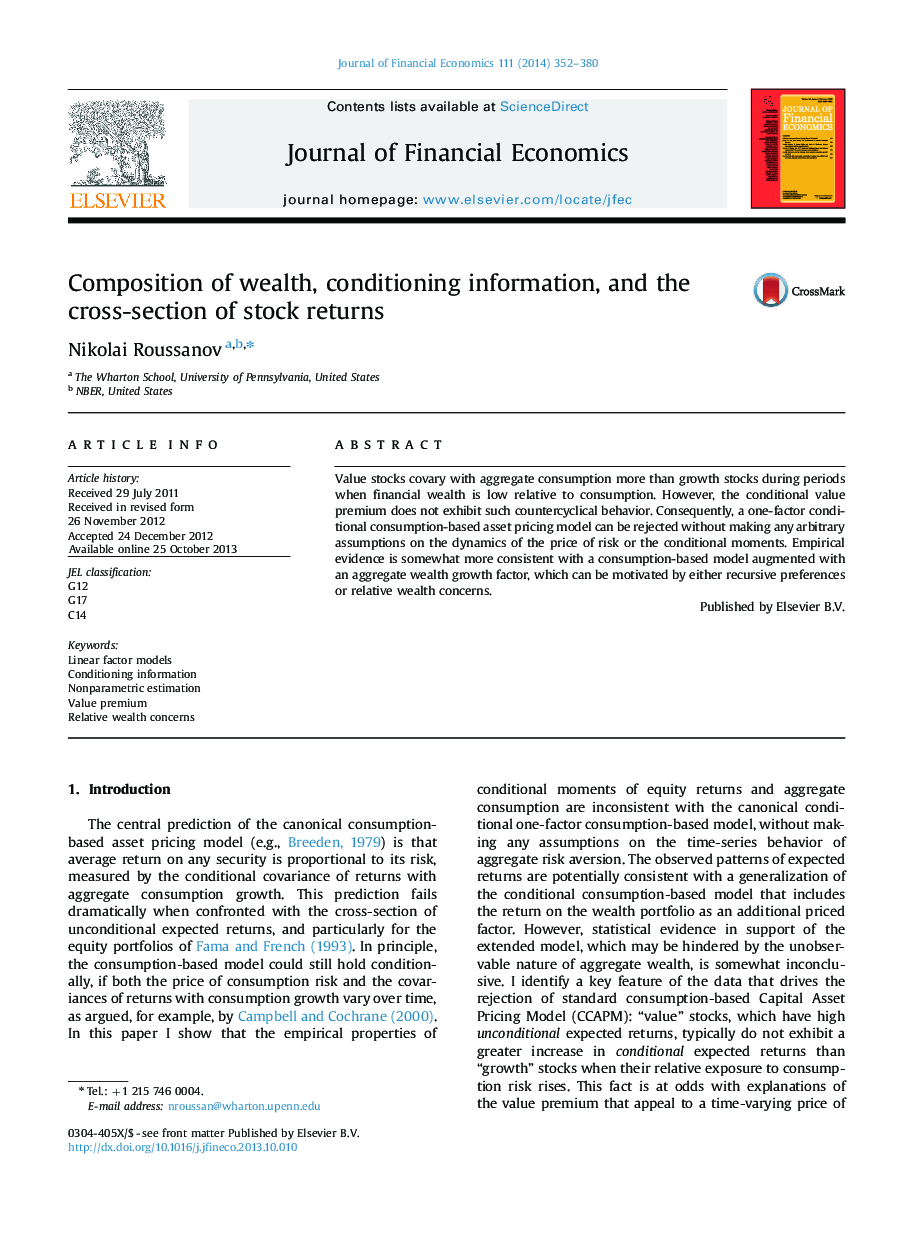| Article ID | Journal | Published Year | Pages | File Type |
|---|---|---|---|---|
| 959475 | Journal of Financial Economics | 2014 | 29 Pages |
Abstract
Value stocks covary with aggregate consumption more than growth stocks during periods when financial wealth is low relative to consumption. However, the conditional value premium does not exhibit such countercyclical behavior. Consequently, a one-factor conditional consumption-based asset pricing model can be rejected without making any arbitrary assumptions on the dynamics of the price of risk or the conditional moments. Empirical evidence is somewhat more consistent with a consumption-based model augmented with an aggregate wealth growth factor, which can be motivated by either recursive preferences or relative wealth concerns.
Related Topics
Social Sciences and Humanities
Business, Management and Accounting
Accounting
Authors
Nikolai Roussanov,
